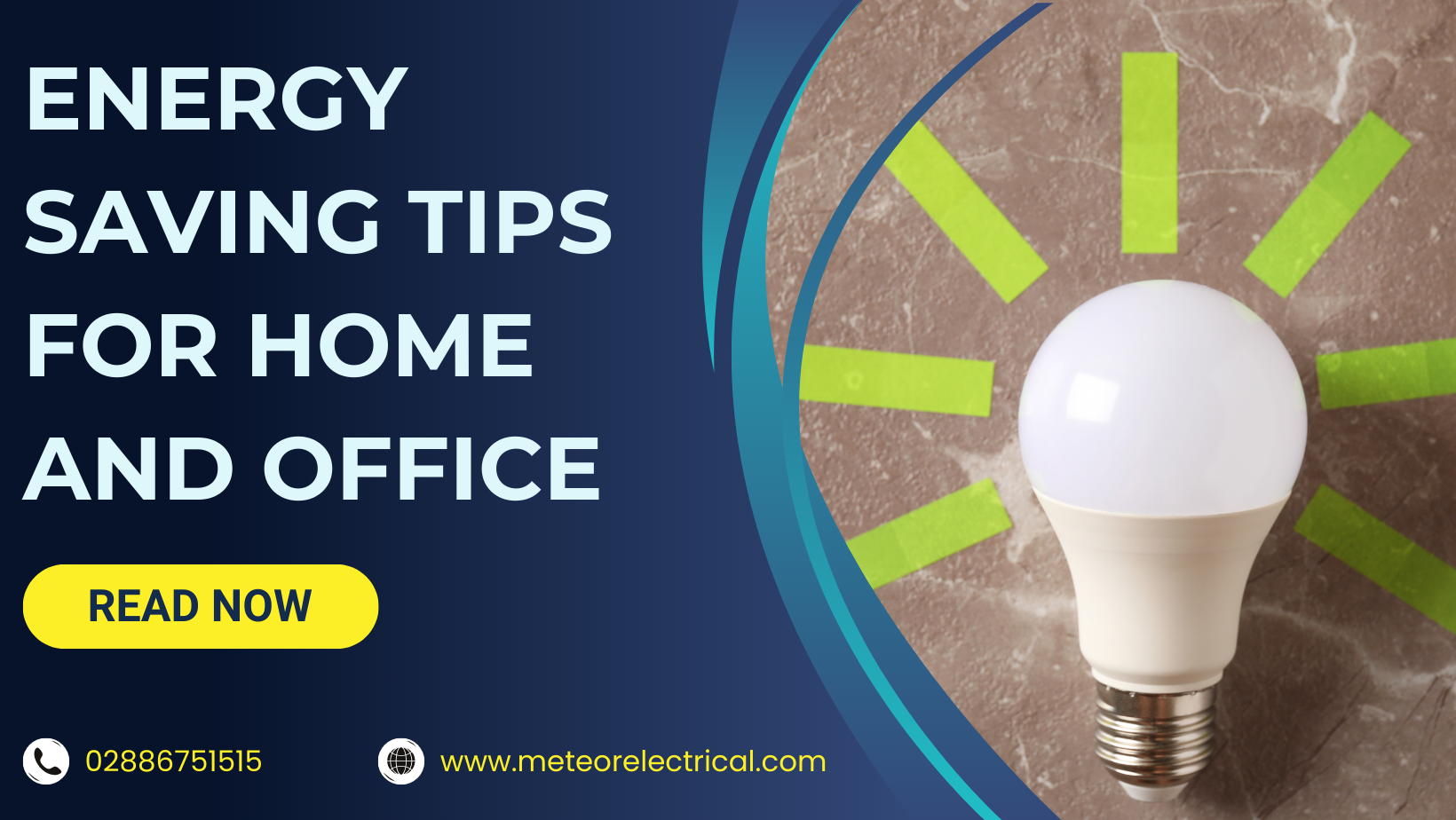Energy Saving Tips in your Home and Office
Energy conservation is a great way to become more cost-efficient and positively impact the environment. With our energy saving tips, you will lower your carbon footprint, use your electrical products more efficiently and earn major savings on energy bills.
Our tips to save energy cover a variety of different areas. Here you will find information on how to save energy at home tips and how to save energy in the office tips. Here is everything you need to know about energy saving tips.
What Is Energy Conservation?
Before we take a look at home energy saving tips, it is important to understand energy conservation. In the simplest terms, energy conservation is the process of using less energy in order to reduce environmental impact and lower costs on energy bills.
Energy conservation happens in many different forms. You can conserve energy by using less gas, electricity, or any other type of energy that you get from paid utilities. Since our planet has a finite number of resources, active energy conservation is beneficial for both individuals and our larger energy systems.
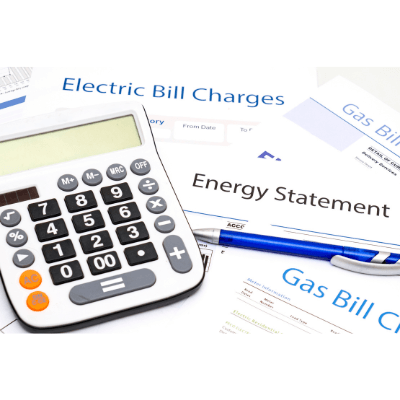
How To Save Energy Tips?
So, what are how to save energy tips? These energy saving tips will help you use your electronic products and appliances more efficiently to ensure that you conserve energy and reduce your carbon footprint. Some of these home energy saving tips UK will also ask you to make lifestyle changes to accommodate energy conservation in your daily life.
To master these energy saving tips, it is important that you get a better understanding of your energy bill. By gaining a better understanding of your bill, you will see areas where you use excessive energy. This will allow you to implement tips to save energy successfully. Once you have a better understanding of your energy consumption, you will successfully master these energy saving tips UK.
How To Save Energy At Home Tips
Here we will look at how to save energy at home tips. These tips can work in a broader setting as well, but they work best as tips to save energy at home.
For many households, energy bills can take up a large section of your household budget. Home is also where most people spend the majority of their time. Due to these reasons, a home is one of the best places to start practicing energy conservation. With these home energy saving tips, you can get your friends and family involved to make a bigger energy conservation impact. Here are 12 ways on how to save energy at home.
1. Make Adjustments To Your Daily Lifestyle
One of the best ways to make an impactful energy saving change is by switching up your daily lifestyle. To reduce your energy consumption at home and increase your energy savings, you don’t always have to go out and purchase energy efficient products or appliances. You can start implementing tips to save energy by simply turning off lights when they are not in use.
One of the simplest home energy tips is turning off any appliances when you are not using them. You can also start reducing your use of appliances that take up too much energy. Such appliances include equipment that helps you with household chores. You can start performing such household tasks manually to save more energy. For example, you can start washing dishes by hand instead of using a dishwasher or hand-dry clothing instead of putting them in a dryer.
With these simple lifestyle-changing home energy saving tips, you can start making real progress toward energy conservation. Lifestyle-related energy saving tips UK have the biggest potential when it comes to utility savings. With these energy saving tips, you can save a great portion on your utility bills per year.
Some other ways to use these home energy saving tips UK include turning down the heat on your thermostat during the winter months. You can also try to use the air conditioner less during the summer. Heating and cooling costs take up nearly half of an average household’s energy bills. Therefore by reducing your use of such heating and cooling appliances, you can start achieving great savings.
There are various tools on the market that help you identify areas where you use the most energy in your daily life. Once you identify these areas, you start implementing meaningful changes to reduce energy consumption.
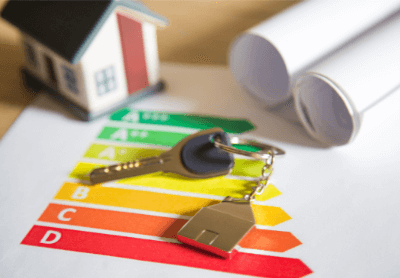
2. Switch Off Standby Appliances
Switching off standby appliances can help you save significantly on your energy bills. Standby appliances still use up energy even though they are not actively in use.
These appliances are often hidden expenses on your bill. Almost all electrical products can be turned off completely without upsetting their settings and programming. Make sure to check the packaging and specification of each product if you are unsure about completely switching it off. For an even more efficient method of switching off standby appliances, you can try using a standby saver.
Smart plugs are also a great way of controlling all your appliances. Simply use a smart plug to switch off all your standby appliances at once. Visit Meteor Electrical to browse our wide range of smart plugs, including the Knightbridge 16A smart plug. With a smart plug, you can control all your electrical appliances from your smartphone. Check out blog - What is a Smart Plug.
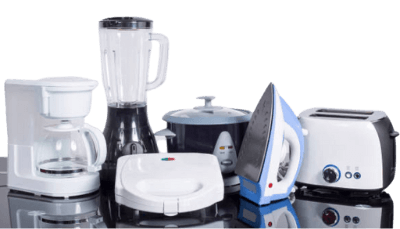
3. Replace Your Traditional Light Bulbs
One of the most effective home energy saving tips UK includes changing your traditional light bulbs with energy saving light bulbs. Standard incandescent light consumes an excessive amount of energy, and these light bulbs need to be replaced quite frequently.
With exceesive energy use and frequent replacement, your energy costs can add up significantly. You can start saving on your electricity bills and become more energy efficient by switching to energy saving light bulbs. Some energy savings light bulbs include halogen bulbs, compact fluorescent (CFL) light bulbs, and light-emitting diode light bulbs (LEDs).
These energy saving light bulbs use less energy than an incandescent light bulb. Energy-efficient light bulbs have longer lifespans than traditional light bulbs. Some energy saving light bulbs have high upfront costs, but since these bulbs have a longer lifespan, you will save money in the long run.
You can find a wide range of energy efficient light bulbs at Meteor Electrical. For high-grade LED light bulbs, browse through the Kosnic range at Meteor. Kosnic offers high-quality LED lighting solutions that brighten up your home without consuming too much energy.
Kosnic is a leading manufacturer in energy-efficient lighting; therefore, you are guaranteed a high-quality lighting solution. If you prefer compact fluorescent lights, Meteor Electrical also provides a variety of CFL lighting that works best for domestic and commercial use.
Check out our guide on energy-saving light bulbs.
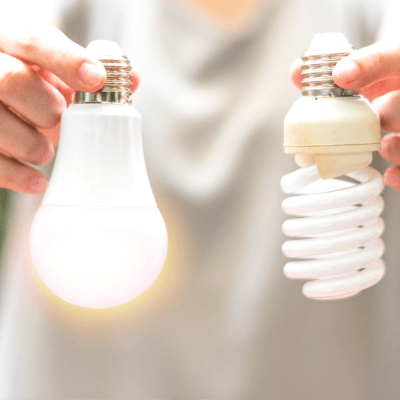
4. Consider Smart Power Strips
Implementing smart power strips in your home is one of the most efficient tips to save energy. Without a power strip, you might experience “phantom loads” This situation occurs when electronics use electricity when they are turned off or on standby mode.
A phantom load is a major source of energy waste. Smart power strips and sockets eliminate the problems of a phantom load as they shut off all power to electronics when they are not being used. You can set up a schedule or an assigned time on your smark sockets to power off electronics during any periods of inactivity.
Most smart sockets come with a handheld remote for controlling the appliances. You can also connect smart sockets with your phone for even better access. Visit Meteor Electrical for smart sockets that will help you save energy. Check out our blog on how to create a Smart Home.
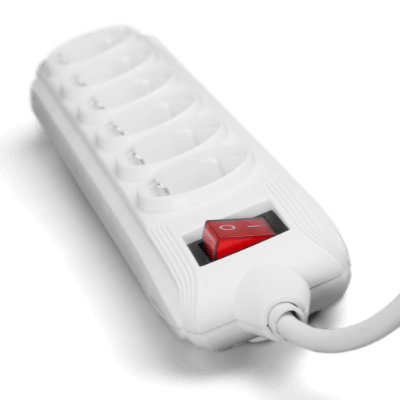
5. Draughtproofing Door And Windows
As mentioned before, heating costs can take up a large portion of your energy bills. Conserving heat energy is important during the winter as energy becomes far more expensive due to frequent heating unit use. Unless your home is new, you will lose heat energy through draught around the window and doors.
You might also lose heat through the chimney and gaps around the flooring. In order to conserve heat in your home, you should get professional draught proofing of your doors and windows. Professional draught-proofing can be costly, but it has several benefits that will help you save on energy costs in the long run.
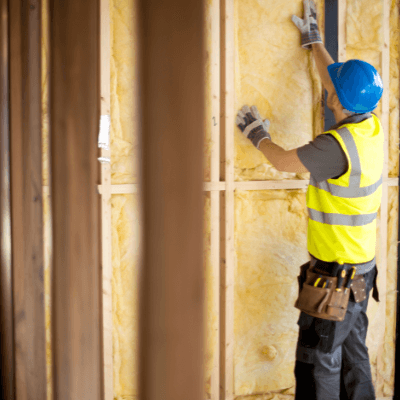
6. Install A Smart Thermostat
If your household spends a lot of energy on heating and cooling, installing a smart thermostat is one of the best tips for saving energy in your home. A smart thermostat can automatically reduce or turn off cooling and heating during times when you are away or asleep. These periods of inactivity can often take up a lot of energy without you knowing about it.
When you install a smart programmable thermostat, you avoid wasting energy from cooling and heating. With a smart thermostat, you don’t need to spend money on upgrading your HVAC systems. Smart thermostats come in a variety of different models that can fit any household. You can create a daily schedule for even more efficient use of your heating and cooling systems.
Smart thermostats can also indicate when you need to replace air filters or do maintenance on your heating and cooling systems. These maintenance reminders will help you improve the efficiency of the heating and cooling units.
For ways to save heat energy, check out our blog here.
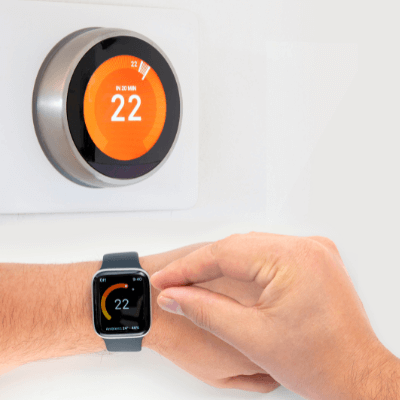
7. Reduce Water Heating Expenditure
Water heating is a major factor in high energy consumption in households. You can avoid this problem by purchasing efficient water heater systems. Apart from purchasing a water heater, there are three ways you can avoid wasting energy through water heating. These include:
- Using less hot water
- Turning down the thermostat on the water heater
- Insulating the water heater and the first 100cm of hot and cold water pipes
If you want to replace your standard water heater with a more energy-efficient version, you must keep two factors in mind. Consider a water heater that meets your household’s needs and check the type of fuel used by the water heater.
Efficient water heaters use energy up to 80 percent more efficiently than standard water heater units. Some tankless water heaters are energy-saving, but they don’t meet the demands of a large household.
8. Consider A Shower Over A Bath
Swapping a bath with a shower can help you save a lot of energy in the long run. Baths waste a lot of hot water, and since heating bears a heavy load on energy grids, you should switch to showers for energy efficiency. Consider taking a 5 minute shower to make more efficient use of energy, as this only takes up a third of the water used in baths.
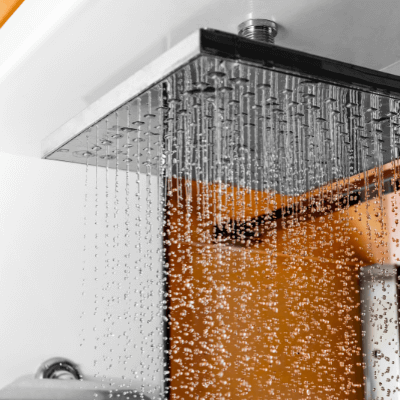
9. Weatherise Your Home
Weatherising your home is a great way to reduce your cooling and heating expenses. Weatherising a home includes sealing any air leaks where hot or cold air may escape. The most common sources of air leaks are the air ducts, windows, and doors. To prevent air leaks, check for openings or cracks between the wall and the duct.
Also, check for openings near window trims and doorframes. You can apply caulk to seal air leaks between stationary objects such as the window frame and the wall. For openings in moving objects such as doors and windows, you can apply a weather stripping component. Caulk and weather stripping is easy and simple air sealing techniques that have a great return on investment in under a year.
Openings in floors, walls, and ceilings from electrical wiring and plumbing can also cause air leaks. Consider sealing these areas as well. When hot or cold air escapes, you might have to use your heating and colling systems longer. However, since the hot or cold air keeps escaping, you won’t be able to reach an optimal temperature inside your home. To avoid this situation, consider weatherising your home. This process will greatly cut down the cost of your energy bill.
10. Insulate Your Home
Insulation is an essential energy saving tip because it plays a key role in reducing your utility bills. Insulation helps you retain heat in your household during the winter. Insulation also keeps the heat out during the summer.
With proper insulation, you won’t have to rely on your heating and cooling units too much. The ideal level of heat resistance for your insulation depends on your region. If you live in a warmer region, you might require a lower level of insulation than a place in a colder climate region. To adequately install insulation, you must focus on some core areas of your home. These core areas include the walls, loft space, floors, and basement. Consider adding insulation in these areas.
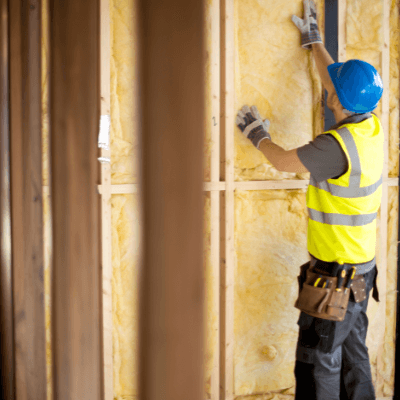
11. Use Ceiling Fans Over Air Conditioning
Consider using ceiling fans over air conditioning. Air conditioning units consume a significant portion of energy, and this can also prove costly in the long run. If a home is in a warmer region, install ceiling fans to provide cool air.
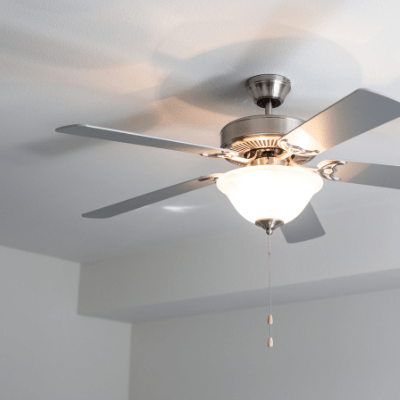
12. Wash Clothes In Cold Water
Washing clothes is a necessary chore in many households. However, this is also a very energy-intensive task. Washing clothes can take up a lot of energy if you use warm water. Consider using cold water to wash your clothes instead. Cold water will help you save energy by reducing heat consumption. Your clothes will also suffer less heat damage with cold water.
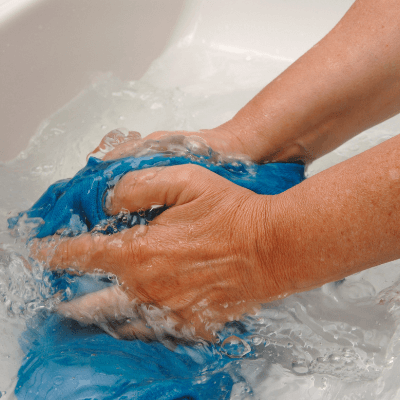
How To Save Energy In The Office Tips
Energy conservation does not only happen at home. Whether you work in an office or own an office building, there are several tips to save energy while you are in the workplace. You can also find ways to conserve energy in the office. While you can use several home energy saving tips at the workplace, here are some office specific tips to save energy.
1. Use Daylighting
Daylighting through windows and skylights is a great way to make use of natural light. You can use natural light instead of artificial lighting to save energy costs. In large office spaces, natural lighting is crucial as it will help you save a significant amount of energy costs.
Large windows will also provide heating during the winter, and you won’t have to rely too much on heating systems.
2. Use Computer’s Power Management Systems
Office desktops waste a lot of energy as most of them are on standby when not in use. Standby appliances take up a lot of energy, and this energy is wasted. Go through the power management settings of office desktops to assign shut down hours when the computer is not in use.
3. Consider Efficient Water Heaters
Office spaces consume a lot of water, and in the winter, heating systems use a lot of energy to provide heater water to all office building occupants. Consider installing efficient water heating systems to ensure that your water heater doesn’t waste any energy while providing hot water.
4. Conduct An Office Energy Assessment
An office energy assessment will investigate and analyse your office’s energy consumption. A professional auditor will review the office’s building’s energy use and will give you tips on how to make improvements. Some auditors will also review office equipment and provide any tips about maintenance and repairs. The auditing process will help you gain a significant reduction in energy costs.
Visit Meteor Electrical to make your house more efficient with our smart switches and sockets and our smart heating.

